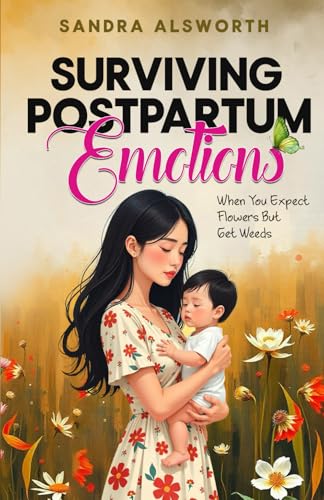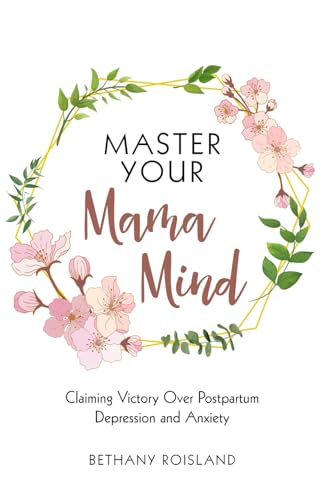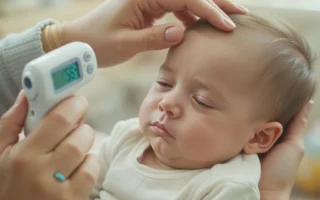What is postpartum depression and how do I know if I have it? Bringing a new baby into the world is often described as a joyful and transformative experience. However, for many new mothers, this period can also bring unexpected emotional challenges. Postpartum depression (PPD) is a serious mental health condition that affects a significant number of women after childbirth. Recognizing its symptoms early can make a major difference in recovery.
What is postpartum depression?
Defining postpartum depression
Postpartum depression is a mood disorder that occurs after childbirth. Unlike the “baby blues,” which typically resolve within a couple of weeks, postpartum depression can last for months if untreated and significantly impact a mother’s well-being.
How is postpartum depression different from the “baby blues”?
The “baby blues” involve feelings of sadness, anxiety, and mood swings that many new mothers experience. These feelings usually begin a few days after delivery and fade within two weeks. In contrast, postpartum depression is more intense and persistent, often requiring professional intervention.
What are the symptoms of postpartum depression?
Emotional symptoms
- Persistent sadness or hopelessness
- Intense irritability or anger
- Severe mood swings
- Difficulty bonding with the baby
Physical and behavioral symptoms
- Changes in appetite
- Insomnia or excessive sleeping
- Fatigue or loss of energy
- Withdrawal from family and friends
- Thoughts of harming oneself or the baby
Why does postpartum depression happen?
Biological factors
The hormonal changes after childbirth are significant. A dramatic drop in estrogen and progesterone can trigger mood disorders. Additionally, thyroid hormone levels can also decrease, leading to symptoms of depression.
Emotional factors
Caring for a newborn can be overwhelming. Sleep deprivation, anxiety about parenting, and feeling less attractive can contribute to postpartum depression.
Social factors
Lack of a support system, financial stress, and relationship problems can also elevate the risk.
Who is at risk for postpartum depression?
Risk factors
- Personal or family history of depression
- Previous postpartum depression
- Complications during childbirth
- Stressful life events during pregnancy or shortly after
- Lack of support network
Understanding these risks can help in early intervention and prevention strategies.
How can I tell if what I’m feeling is postpartum depression?
Monitoring your emotions
If feelings of sadness, anxiety, or hopelessness last more than two weeks and interfere with daily life, it could be postpartum depression.
Using screening tools
Healthcare providers often use screening questionnaires like the Edinburgh Postnatal Depression Scale (EPDS) to assess symptoms.
Seeking professional evaluation
Consulting with a healthcare professional is crucial for an accurate diagnosis and appropriate treatment.
What should I do if I think I have postpartum depression?
Reach out for help
Talk to your doctor, midwife, or mental health professional. Early treatment leads to better outcomes.
Explore treatment options
Treatment may involve therapy, medication, support groups, or a combination. Cognitive-behavioral therapy (CBT) and interpersonal therapy (IPT) are particularly effective.
Engage your support system
Don’t hesitate to lean on family and friends. Share your feelings and accept help with household tasks and baby care.

How is postpartum depression treated?
Therapy options
Psychotherapy, particularly CBT and IPT, helps many women work through emotional struggles and develop coping strategies.
Medications
Antidepressants may be prescribed. Discuss the risks and benefits with your doctor, especially if breastfeeding.
Lifestyle changes
- Regular physical activity
- Healthy eating habits
- Adequate sleep when possible
- Mindfulness practices
Can postpartum depression be prevented?
Prenatal education
Learning about the signs and risks during pregnancy can prepare new mothers and their families.
Building a support network
Creating a network of supportive people who can assist with the baby and household tasks reduces the burden.
Early intervention
Women with a history of mental health issues should discuss preventive strategies with their healthcare providers during pregnancy.
When should I seek emergency help?
If you experience thoughts of harming yourself or your baby, seek emergency help immediately. Call emergency services or reach out to a crisis hotline.
FAQs
Postpartum depression can last for months or even longer if untreated. With treatment, most women improve within six months.
Yes, fathers can also experience symptoms of postpartum depression, though it is less common.
Yes, while it often begins within the first few weeks, it can start up to a year after delivery.
Some women recover with therapy and support alone, but medication can be crucial for others. Each case is individual.
It can impact bonding initially, but with proper treatment and support, a strong bond can still develop.
References
- American Psychological Association. (2023). Postpartum depression. Retrieved from https://www.apa.org/topics/postpartum-depression
- Mayo Clinic. (2023). Postpartum depression. Retrieved from https://www.mayoclinic.org/diseases-conditions/postpartum-depression/symptoms-causes/syc-20376617
- National Institute of Mental Health. (2023). Postpartum Depression Facts. Retrieved from https://www.nimh.nih.gov/health/publications/postpartum-depression-facts
- Centers for Disease Control and Prevention. (2023). Depression Among Women. Retrieved from https://www.cdc.gov/reproductivehealth/depression/index.htm
- March of Dimes. (2023). Postpartum Depression. Retrieved from https://www.marchofdimes.org/find-support/topics/postpartum/postpartum-depression
I’m Cris Coelho, and motherhood has transformed my life!
As a speech therapist and early childhood educator, I’ve always been passionate about child development. But it was becoming a mother that truly opened my eyes to the real challenges and joys of this journey.
Here at Materníssima, I share everything I’ve learned — blending professional knowledge, real-life experience, and a heartfelt touch.
You’re very welcome here! 💕






